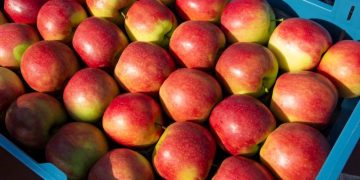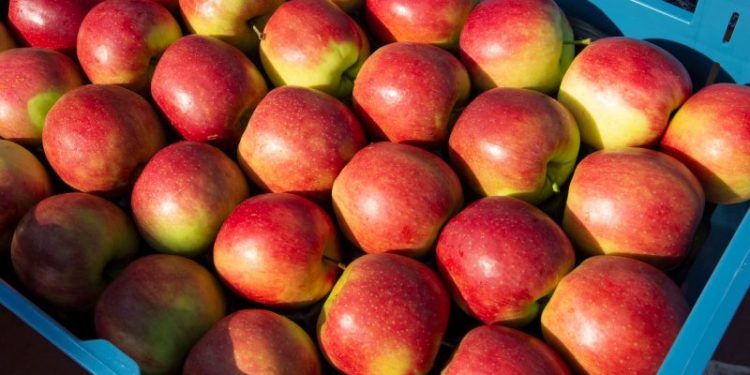The Belgian Center for Fruit Growing (Pcfruit), together with the Universities of Hasselt and Maastricht, is starting a study on the usefulness of fruits in the production of building materials or textiles. This is reported by the Dutch Fruit Growers Organization (NFO).
Fibers from plants such as hemp are already being used as insulating material in construction. Pcfruit wants to explore whether substances found in fruit varieties could also find new uses. For fruit growers, this can be useful when, for example, there is an additional destination for fruits that are currently being processed industrially.
This includes ferulic acid. “This acid is found in several types of fruit. For example, it can be used in the textile industry to make clothing biodegradable,” Pcfruit Managing Director Dani Bylemans told VRT radio.
In addition to Pcfruit’s collaboration with the Universities of Hasselt and Maastricht, the pilot center is collaborating with the textile innovation center Centexbel in Ghent and Compas Agro in Venlo. The province of Limburg, Flanders and the European Union are jointly allocating 4 million euros for the study. This period is three years.
Bio-based building on the rise webinar – an opportunity for farmers?
Biologically based construction is in vogue. The government wants to promote bio-based construction. This opens up opportunities for farmers involved in farming. But what exactly is a biologically based design? What do politicians want to achieve with bio-based building? What can cultivation, research and supply chains do about it? Is it possible to profit from growing fiber crops? BO Akkerbouw, Duurzaam Praktijknetwerk Akkerbouw (DPA) and Nieuwe Oogst are organizing a webinar for arable farmers about the opportunities this new development offers. This will be an extensive program with speakers from Biobased Innovations Garden, Ballast Nedam, Van De Bilt zaden and vlas, Building Balance, Rabobank, Triodos and LTO. January 24 from 19.30 to 21.00. You can register here: Biobased construction on the rise, an opportunity for farmers?
The vast majority of FNV members working in greenhouse horticulture do not agree with the employers’ final proposal.
According to the union, there is a significant gap between the employers’ final offer and the FNV’s wage requirements. Employer representatives are proposing a 3 percent increase in wages from January 1, 2023, and by 2 percent from July 1, 2023. Director Linda Slugter of FNV Agrarisch Groen claims that with this proposal, the number of employees will certainly be reduced by 5 percent.
Slagter calls the decision of the members of the FNV not to agree to this bold. She also believes that employees’ loyalty to their employers is too often put to the test. “We are disappointed by this and are asking employers to come up with a better offer.”
General price compensation
The FNV wants the increase in living expenses to be reflected in wages. In addition, the trade union proposes to include general price compensation in the collective agreement. Slugter says FNV understands that greenhouse gardeners are having a hard time too, but she also sees that more and more employees no longer know how to financially support this.
“This is leading to dissatisfaction in the workplace, and the employers’ final proposal for a collective bargaining agreement does not improve the situation,” said the union’s chief executive. According to FNV, an average of about 35,000 employees are engaged in greenhouse horticulture. During the peak season, this number is much higher.































